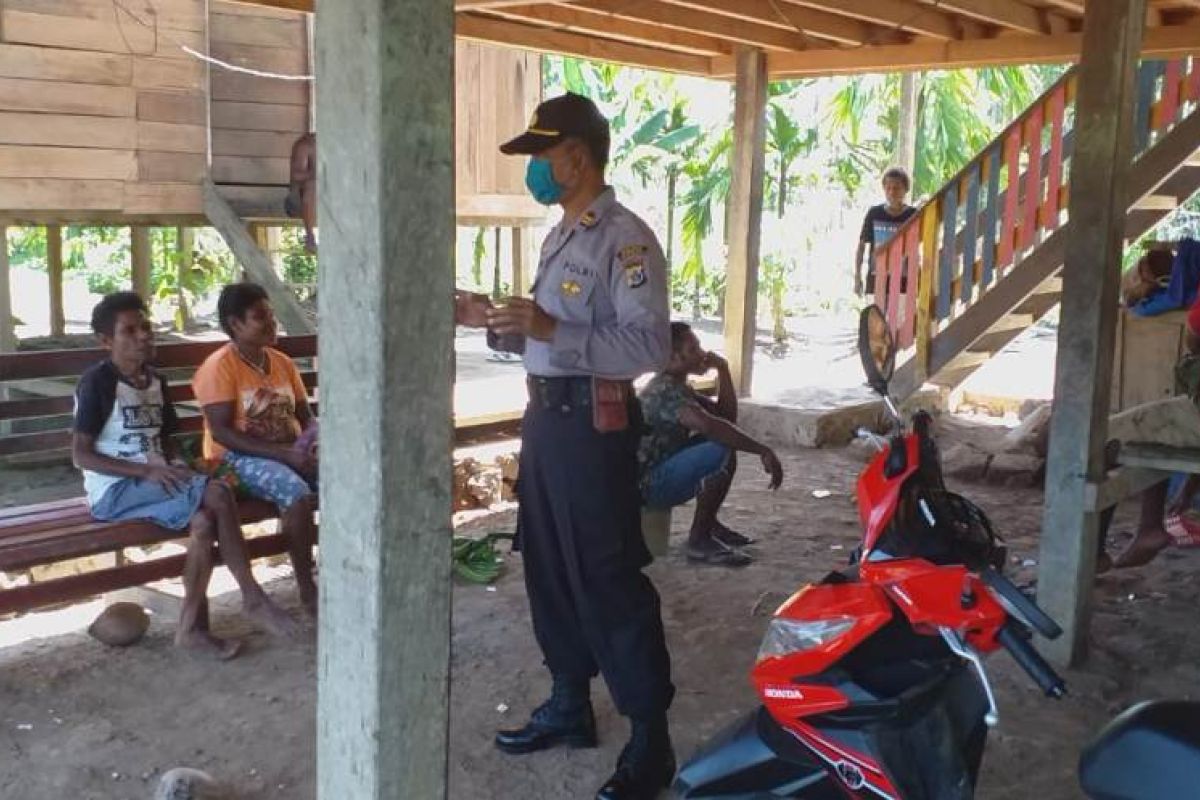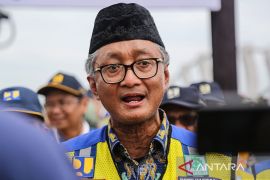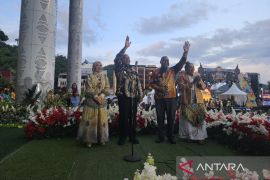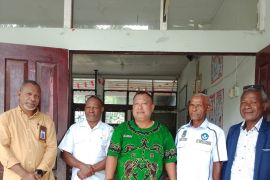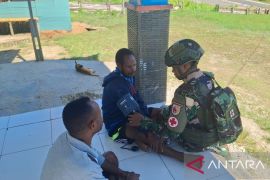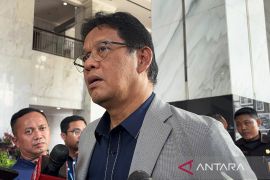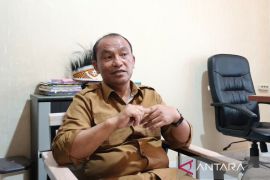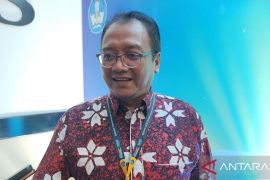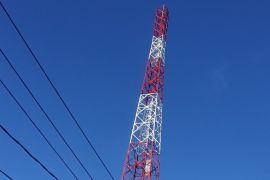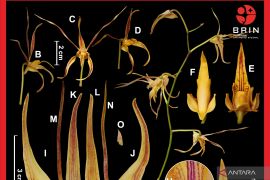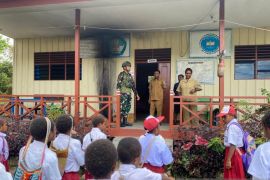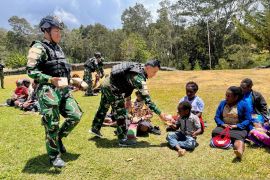"We call on Mosso villagers to practice a healthy lifestyle, keep their environment clean, wear face masks, and maintain the required physical distance to contain the spread of the new coronavirus disease," Skouw Police Chief First Inspector Kasrun stated here, Tuesday.
Kasrun noted that while conducting COVID-19 patrolling, he was accompanied by several of his men to meet and speak to local residents on the importance of working together to break the chain of the deadly coronavirus that has killed so many people across the world.
"I also call on the villagers of Mosso to follow the government's healthcare protocols, including washing their hands regularly and not often venturing outside," he emphasized.
The steps taken by Kasrun and his men reflect the Papuan provincial government's efforts to flatten the curve during this new coronavirus disease (COVID-19) pandemic.
Related news: Papua has 155 confirmed COVID-19 cases: spokesman
Related news: Over 100 officials in Papua test positive for coronavirus
As of Monday (April 27), Papua Province had recorded 155 confirmed cases, according to spokesman of Papua's COVID-19 Task Force, Silwanus Sumule.
"With 13 other new patients, the number of COVID-19 patients in Papua Province totals 155. As many as 104 of them remain hospitalized," Sumule had stated earlier.
In spite of a spike in the number of patients, those fully recovering from this deadly virus also showed an increasing trend.
"Thank God, 44 of the 155 residents diagnosed with coronavirus have been discharged from hospitals after having fully recovered," Sumule pointed out.
Meanwhile, the district administration's COVID-19 task force from Raja Ampat District in West Papua Province revealed that four local residents had tested positive for coronavirus.
According to Raja Ampat District Government's COVID-19 Task Force spokesperson, Rosenda, three other residents are currently receiving treatment as patients under monitoring status, while 48 others are grouped into "people under surveillance".
The coronavirus outbreak initially struck the Chinese city of Wuhan at the end of 2019, but it then spread to various parts of the world, including countries in the Asia-Pacific region.
The Indonesian government officially announced the country's first confirmed cases on March 2. Since then, the central and regional governments across the country have made persistent efforts to flatten the curve by imposing healthcare protocols and social restrictions.
In breaking the chain of this novel coronavirus disease that has impacted the purchasing power of so many families in Indonesia, large-scale social restrictions are enforced in several cities, including Jakarta, Bogor, Depok, Tangerang, Bekasi, and Pekanbaru.
The central government has also banned homebound travel, or locally known as "mudik," during the fasting month of Ramadhan and Idul Fitri holiday seasons.
Related news: Papua extends large-scale social restrictions until May 6
Related news: Eight hospitals in Jayapura receive protective equipment and test kits
Translator: Alfian R, Rahmad Nasution
Editor: Sri Haryati
Copyright © ANTARA 2020
